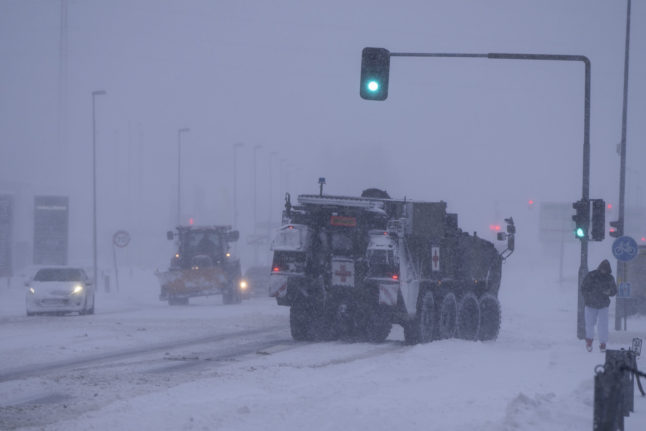Borås, like most areas of Sweden, has received an unseasonal amount of snow this winter with little sign of a break in the clouds.
While the snow has become a familiar cause of frustration for commuters in recent weeks, the problems have now extended to emergency services.
Several health authorities around the country have recently swapped their pools of Swedish Volvo four-wheel-drive ambulances in favour of Mercedes, as the German cars were able to cope with greater loads.
The new ambulances are however rear-wheel-drive and reports have been dropping in of ambulances getting stuck in the snow, and needing the help of neighbours and passers-by to help push them free.
The new Mercedes vehicles are instead equipped with “snow-socks” which can be pulled over the wheels to help boost traction; but with the reports starting to mount, a review is set to consider the relative merits of the respective vehicles.
“We are going to put in place a group that will weigh up the pros and cons of the vehicles. It is important to point out that there are also significant advantages to this type of vehicle,” said Magnus Eriksson, head of the ambulance fleet in Borås, to SVT.
In the meantime, ambulance staff are being told to take precautions.
“It is a question of being prepared for the conditions and perhaps putting the socks on before the ambulance gets stuck,” Eriksson said.
Heavy weekend snowfalls have led to a slew of schools in several municipalities closing their doors on Monday due to the risk of collapsing roofs.
In Jönköping, sections of the Juneporten shopping centre have been closed due to large amounts of snow on the roof.
A recent spate of collapsed roofs could be due to checks on larger buildings being neglected in recent years, according to experts at the SP Technical Research Institute of Sweden.
“We think that there has been a decline in safety standards and controls. That is something we have seen in recent accidents,” Bo Källsner at the institute told news agency TT.
According to Björn Engström at Chalmer’s University of Technology in Gothenburg, the rules are strict regarding the safety of roofs and underlined the importance of investigating every case of a collapse to determine the underlying cause.


 Please whitelist us to continue reading.
Please whitelist us to continue reading.
Member comments